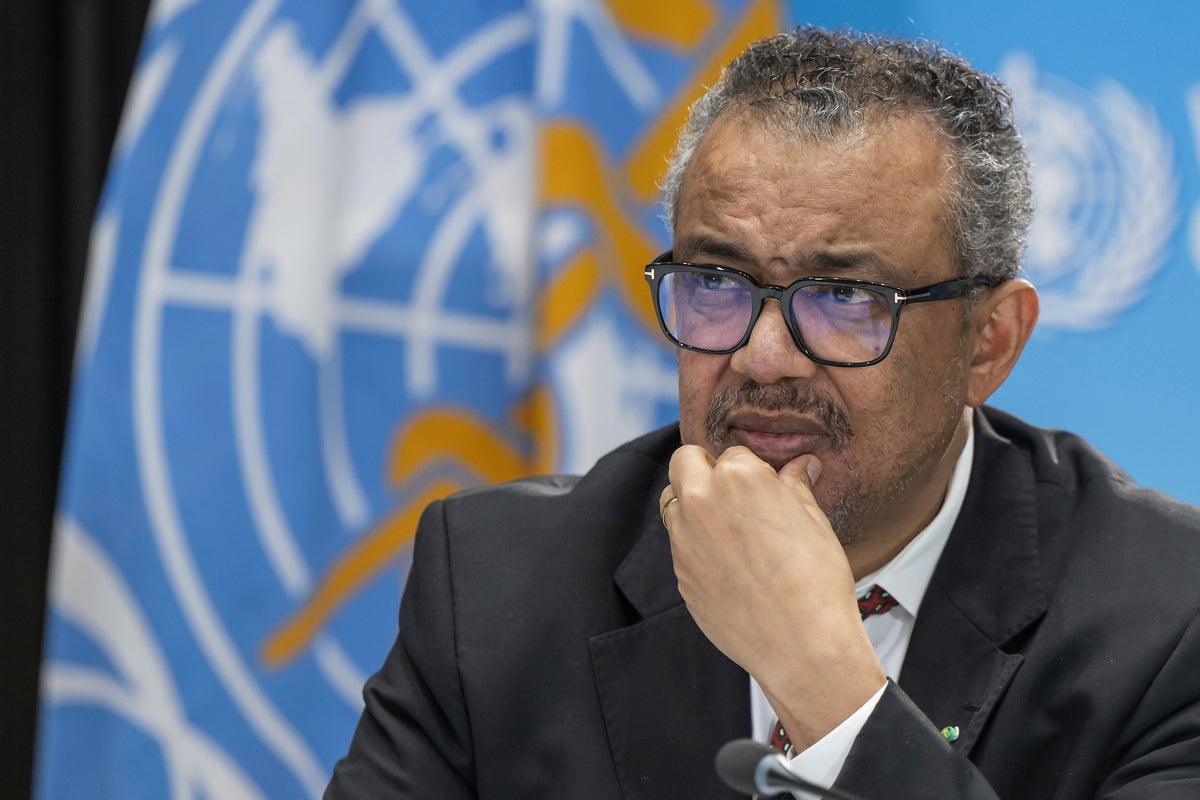
People in at least 70 countries are missing out on much-needed medical treatment thanks to aid cuts by the US and other nations, the World Health Organisation (WHO) director has said – in a stark warning about the colossal impact of these moves.
The Donald Trump-sanctioned slashing of US-funded programmes under the United States Agency for International Development (USAID) is the most prominent example. But Germany, France and the Netherlands have also taken an axe to aid spending, while the UK is set to cut foreign assistance spending by billions of pounds.
"Patients are missing out on treatments, health facilities have closed, health workers have lost their jobs, and people face increased out-of-pocket health spending," WHO Director-General Tedros Adhanom Ghebreyesus said in an address to the World Health Assembly.
“Many ministers have told me that sudden and steep cuts to bilateral aid are causing severe disruption in their countries and imperilling the health of millions of people,” Dr Tedros added.
The Independent has previously reported how the US and UK cuts are projected to lead to millions more people dying from Aids, an increased risk of famine, and falling access to clean water and education as a result of aid cuts.
Meanwhile, the WHO itself is also facing more than a billion US dollar reduction to its budget over the next two years, as its biggest contributor the US is withdrawing funding as part of Trump’s plans.
As part of the World Health Assembly, the 194 WHO member states will have to deal with an already slimmed-down budget of $4.2 billion (£3.1bn) for 2026 and 2027. That is 20 per cent less than the $5.3bn originally proposed and amounts to $2.1 billion a year.
"2.1 billion dollars is the equivalent of global military expenditure every eight hours," Dr Tedros told delegates.
But the cuts will mean losing staff, the WHO’s director general confirmed, with a current plan to cut the agency from 76 departments to 34.
“The organisation simply cannot do everything member states have asked it to do with the resources available today,” he said.
As the United States prepares to exit the organisation, China is set to become the biggest provider of state fees - one of the WHO's main streams of funding alongside donations.
The WHO conducts a range of activities from developing treatment guidelines and checking the safety of medicines to coordinating countries’ emergency responses. It was heavily criticised by the the Independent Panel for Pandemic Preparedness and Response for its response to Covid-19, in particular for not declaring a global emergency sooner. At the same time it has faced criticism - and swirling conspiracy theories - from people who believe global agencies have too much power over national governments.
Amid the chaos, there is a glimmer of opportunity, however, as “many countries also see this as an opportunity to leave behind an era of aid dependency and accelerate the transition to sustainable self-reliance based on domestic resources,” Dr Tedros said.
In the UK, as in several other countries, aid cuts are being driven by a decision to spend more on defence. Dr Tedros asked the room to consider that his agency’s budget shortfall represented the price of global military spending, “every eight hours,” and urged countries to also consider preparing for, “an attack from an invisible enemy”.
He pointed out that the Covid pandemic killed an estimated 20 million people and wiped $10 trillion from the global economy.
The WHO member states are expected to finalise an agreement on Tuesday which will set out how the world should react to a future pandemic.
This story is part of The Independent’s Rethinking Global Aid series.







